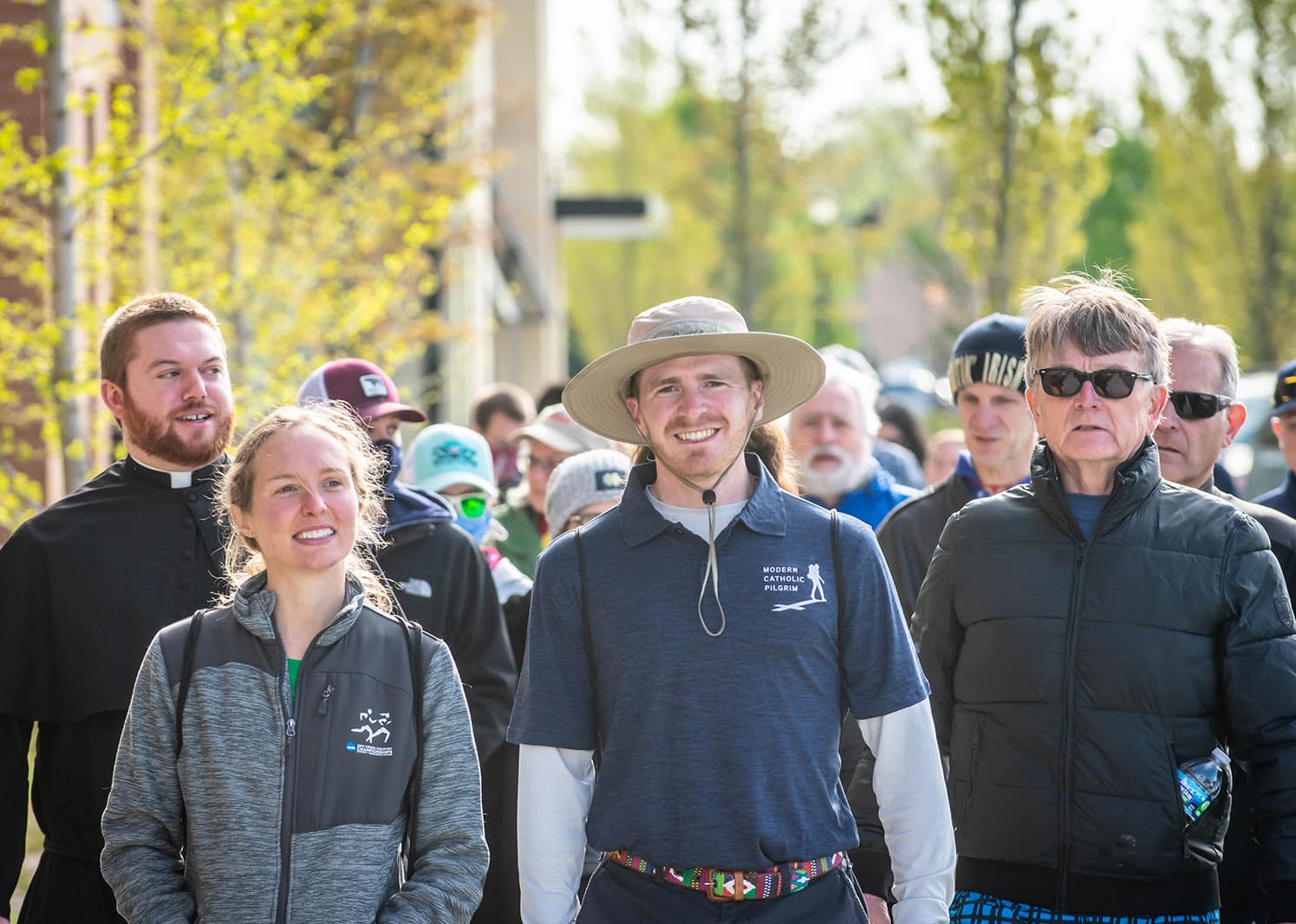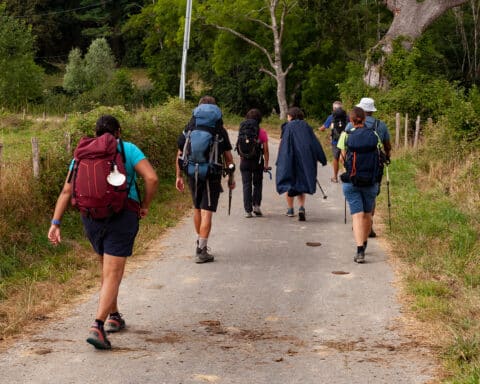Next week, pilgrims will begin a 6,500-mile journey, walking across the country with the Eucharist as part of the three-year National Eucharistic Revival.
Organizers say that it will be the largest Eucharistic pilgrimage in history, with four routes covering the entire continental United States as the groups of pilgrims journey toward Indianapolis for the National Eucharistic Congress.
Groups of “perpetual pilgrims” will journey the entire route. Along the way, they will invite over an estimated 100,000 outsiders to join them for part of the journey. And it all begins May 18.
With a pilgrimage this size, there are many logistical concerns. Since July 2022, Will Peterson, the director of Modern Catholic Pilgrim, has been developing a plan — and countless backup plans — to ensure the pilgrimage’s success.
“There’s a sense of fluidity to it,” Peterson told Our Sunday Visitor. “Especially during the pilgrimage, there are going to be instances where we have to move this event up half an hour because they arrived early or there is a funeral at a parish, and now we need to actually go to a different church and be there. We have been working hard to make sure that those responses all get put in place, but then we recognized that we’re not going to have a static schedule at any point for the sixty days along the four routes.”
Subsidiarity in action
A key to the planning success, Peterson said, has been working with diocesan route coordinators. Each diocese that the pilgrimage travels through has appointed a route coordinator who has worked with Modern Catholic Pilgrim to ensure the pilgrimage’s safety and the event’s local success.
“There have been so many different dioceses, parishes and religious orders that have been working with us to make sure that the programs are going to be well-received and that the public, in each diocese, will be able to take part in the pilgrimage; we would not be able to do it without them,” Peterson said.
Of course, coordinating between so many dioceses can be difficult. But the stress and effort have been worth it, Peterson said.
“It would have been easier for us just to step in and say this is exactly what you’re going to do and dictate to them what we want,” Peterson said. “That would be easier for us just logistically, but the diocesan coordinators really are helping to make this pilgrimage their own, as with so many different dioceses involved, it is really reflecting the characteristics of each diocese.”
In addition to the local coordinators, Modern Catholic Pilgrim has brought in a variety of outside experts to help prepare and train the perpetual pilgrims for situations ranging from proper blister treatment to dealing with unruly bystanders.
“We have developed ninety-two plans we call the continuity plan, which address just anything that runs amuck, from the very minor injuries like somebody twisting an ankle to more serious stuff,” Peterson said. “These are to address what you do if something happens that forces the pilgrimage off of the predetermined track.”
Opportunities for encounter
As for those unruly bystanders? For the past ten weeks, the perpetual pilgrims have been meeting every Monday over Zoom to learn how to be successful pilgrims and evangelists. In addition, they held an in-person retreat with Bishop Andrew Cozzens over Presidents Day weekend.
Through this training, they have learned not just practical backpacking skills but also the best evangelization tactics when onlookers ask about the procession.
“We’ve been meeting and having speakers come and talk about topics like the early Church Fathers and the Eucharist and how to have one-minute conversations with a curious onlooker about what they see,” Peterson said. “Ultimately, we have just been trying to prepare them with good evangelization tools for specific situations that they’re going to be encountering.”
Those encounters are going to be numerous. Peterson hopes that the pilgrimage will be an opportunity for Catholics and non-Catholics from all walks of life to encounter the Lord in the Eucharist.
“I am hopeful that the pilgrimage will be an opportunity for thousands upon thousands to encounter our Lord and then to go back on mission into their communities,” Peterson said. “Secondarily, I hope those who don’t know what the Eucharist is are forced to confront it, and God willing, this will be an opportunity for them to encounter and ask questions.”





